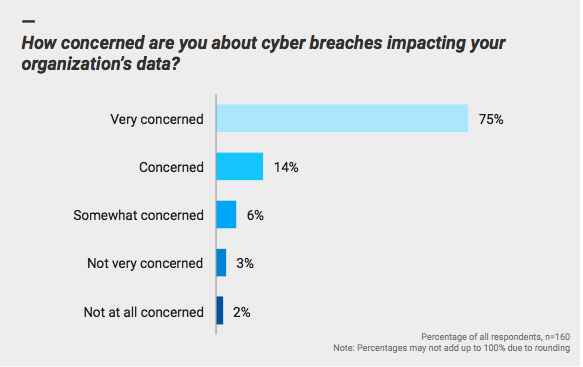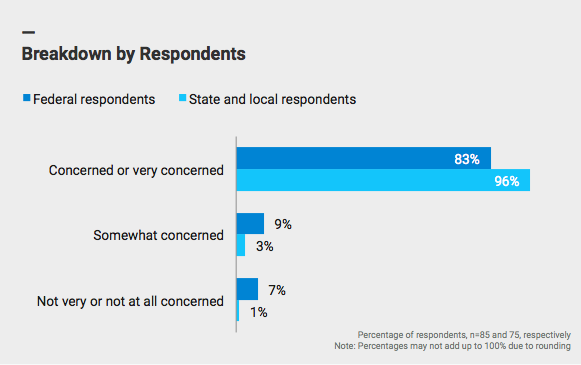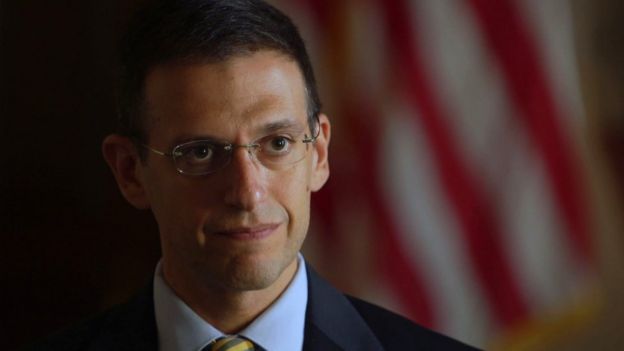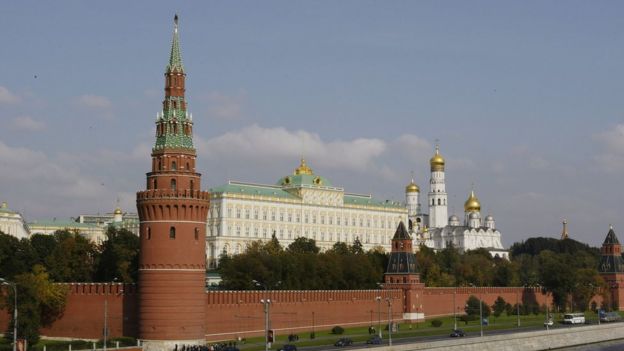New Russian beachhead in Syria
WashingtonTimes: U.S. intelligence agencies are closely watching what appears to be a buildup of Russian military forces in northeastern Syria, very close to the Turkish border.
The buildup has been underway for the past several weeks, and defense officials say there are concerns Moscow is creating a new military air base and outpost similar to the current base near Latakia, on Syria’s Mediterranean coast.
Defense officials said there are indications the Russians are planning to deploy their most advanced air defense weapons, the S-400, at Qamishli, located very close to the Turkish border. Russian-Turkish relations soured in November after Turkish forces shot down a Russian Su-24 jet that strayed into Turkish airspace.
The London Times reported last month that some 200 Russians were fortifying a runway at the Qamishli air base.
The report prompted the Russian Defense Ministry to deny Moscow planned to deploy air forces at the base.
“There are no ‘new’ air bases or additional pre-strike staging ports for Russian warplanes in the territory of [the] Syrian Arab Republic, and there are no plans to create them,” Russian Defense Ministry spokesman Igor Konashenkov told the Interfax news agency.
The Russian activity at Qamishli has set off alarms in Turkey, a NATO ally, with fears the Russians are preparing to conduct threatening operations against Turkey in retaliation for the downing of the Su-24, which led to the death of one of the two crew members and a member of the Russian team sent to rescue the downed crew.
Russia denied the jet violated Turkish airspace and said it would retaliate against the Turks for the incident.
Turkey then announced Jan. 30 that another Russian jet violated Turkish airspace, prompting another denial from Moscow.
An Israeli think tank, The Fisher Institute for Air and Space Strategic Studies, this week published photos of the Russian military buildup at Latakia. The photos reveal deployments of over 30 warplanes, including 11 of the supersonic Su-24 bombers. Additionally, the photos show 10 Su-25s and seven advanced Su-35s.
Defense officials say the Russian airstrikes in Syria are aimed primarily at anti-regime rebels with only limited strikes against the Islamic State terrorist group.
The S-400 batteries also are visible in the photos along with Pantsir SA-22 missiles.
***
Serbia and Russia
Moscow confirms: Serbia wants Russian missiles and warplanes
Belgrade showed interest in this after Croatia announced it planned to buy American weapons, a representative of the Russian Federal Service for Military Technical Cooperation said.
“We are considering the issue of delivering air defense systems and MiG-29s to Serbia. That country is our strategic partner in Europe in many spheres, including military-technical cooperation,” the source said.
It was stated on January 15 that in the wake of Croatia’s announced plans to buy MGM-140 ATACMS missiles, Serbia became interested in Russian air defense systems and jets.
If Russia Started a War in the Baltics, NATO Would Lose — Quickly
FP: If Russian tanks and troops rolled into the Baltics tomorrow, outgunned and outnumbered NATO forces would be overrun in under three days. That’s the sobering conclusion of war games carried out by a think tank with American military officers and civilian officials.
“The games’ findings are unambiguous: As currently postured, NATO cannot successfully defend the territory of its most exposed members,” said a report by the RAND Corp., which led the war gaming research.
In numerous tabletop war games played over several months between 2014-2015, Russian forces were knocking on the doors of the Estonian capital of Tallinn or the Latvian capital of Riga within 36 to 60 hours. U.S. and Baltic troops — and American airpower — proved unable to halt the advance of mechanized Russian units and suffered heavy casualties, the report said.
The study argues that NATO has been caught napping by a resurgent and unpredictable Russia, which has begun to boost defense spending after having seized the Crimean peninsula in Ukraine and intervened in support of pro-Moscow separatists in eastern Ukraine. In the event of a potential Russian incursion in the Baltics, the United States and its allies lack sufficient troop numbers, or tanks and armored vehicles, to slow the advance of Russian armor, said the report by RAND’s David Shlapak and Michael Johnson.
“Such a rapid defeat would leave NATO with a limited number of options, all bad,” it said.
The United States and its NATO allies could try to mount a bloody counter-attack that could trigger a dramatic escalation by Russia, as Moscow would possibly see the allied action as a direct strategic threat to its homeland. A second option would be to take a page out of the old Cold War playbook, and threaten massive retaliation, including the use of nuclear weapons. A third option would be to concede at least a temporary defeat, rendering NATO toothless, and embark on a new Cold War with Moscow, the report said.
However, the war games also illustrated there are preemptive steps the United States and its European allies could take to avoid a catastrophic defeat and shore up NATO’s eastern defenses, while making clear to Moscow that there would no easy victory.
A force of about seven brigades in the area, including three heavy armored brigades, and backed up by airpower and artillery, would be enough “to prevent the rapid overrun of the Baltic states,” it said. The additional forces would cost an estimated $2.7 billion a year to maintain.
The report was released Tuesday, the same day Defense Secretary Ash Carter unveiled plans to add more heavy weapons and armored vehicles to prepositioned stocks in Eastern Europe to give the Pentagon two brigade sets worth of heavy equipment on NATO’s eastern frontier. As it stands now, there are two U.S. Army infantry brigades stationed in Europe — one in Italy and the other in Germany — but they have been stretched thin by the constant demands of training rotations with allies across the continent. The new $3.4 billion plan outlined by Carter and the White House would add another brigade to the mix, but it would be made up of soldiers from the United States, rotating in for months at a time.
Late last month, Gen. Philip Breedlove, commander of U.S. European Command, released a new strategy anticipating — and pushing back against — the call for more rotational forces. Flying troops in and out of the region “complements” the units who call Europe home, he wrote, but they’re no “substitute for an enduring forward deployed presence that is tangible and real. Virtual presence means actual absence.”
David Ochmanek from the RAND Corp., a former senior Pentagon official who has studied the challenge posed by Russia’s military, called the administration’s budget proposal for European forces an important step and an “encouraging sign.”
“Heavy armored equipment, pre-positioned forward, is the sine qua non of a viable deterrent and defense posture on the alliance’s eastern flank,” Ochmanek told Foreign Policy. But he said much more needed to be done to strengthen NATO’s defenses.
The findings from the war games will be warmly welcomed by senior officers in the U.S. Army, who have struggled to justify the cost of maintaining a large ground force amid budget pressures in recent years and a preference for lighter footprints. And the report will reinforce warnings from top military leaders, including the chairman of the Joint Chiefs of Staff, Gen. Joseph Dunford, that Russia may represent the number one threat to U.S. interests.
In early 2012, the Obama administration announced the withdrawal of two heavy brigades and their equipment from Germany, cutting deeply into the U.S. Army’s traditional, large footprint on the continent. Since then, the service has been slowly trying to move some hardware back into Germany for use in training exercises with NATO partners. Last year, U.S. Marines also began to roll a small number of Abrams tanks into Romania for a series of exercises with local forces.
Since Russia’s intervention in Ukraine sparked alarm in Eastern Europe, the United States has repeatedly vowed to defend Estonia, Latvia, and Lithuania in the event of an attack, citing its mutual defense obligations under the NATO alliance. In a September 2014 speech in Tallinn, President Barack Obama made an explicit promise to protect the Baltic countries.
“We’ll be here for Estonia. We will be here for Latvia. We will be here for Lithuania. You lost your independence once before. With NATO, you will never lose it again,” Obama said.
But the RAND report said “neither the United States nor its NATO allies are currently prepared to back up the president’s forceful words.”
The borders that the three Baltic countries — all former Soviet republics — share with Russia and Belarus are about the same length as the one that separated West Germany from the Warsaw Pact during the Cold War. But in that era, NATO stationed a massive ground force along the frontier with more than 20 divisions bristling with tanks and artillery.
Tanks are few and far between now in NATO countries, the report said. Germany’s arsenal of about 2,200 main battle tanks in the Cold War has declined to roughly 250. Britain, meanwhile, is planning on pulling out its last brigade headquarters left on the continent.
With only light infantry units at the ready in the Baltics, U.S. and NATO planners are also worried about the continued Russian arms buildup in the exclave of Kaliningrad on the Baltic coast between Poland and Lithuania, and Moscow’s intention to build a new air force base in Belarus, just south of the Polish-Lithuanian border.
The war games run by RAND underscored how U.S. and NATO forces lack the vehicles and firepower to take on their Russian adversaries, which have maintained more mechanized and tank units. NATO ground troops also lacked anti-aircraft artillery to fend off Russian warplanes in the Baltic scenario.
“By and large, NATO’s infantry found themselves unable even to retreat successfully and were destroyed in place,” the report said.
In the war games, although U.S. and allied aircraft could inflict damage on the invading Russian forces, they also were forced to devote attention to suppressing Russia’s dense air defenses and defending against Russian air attacks on rear areas.
Although it was unclear if deploying more troops and armor would be enough to discourage Russia from gambling on an attack in the Baltics, NATO’s current weak position clearly did not pose a persuasive deterrent, the report said.
By undertaking “due diligence” and bolstering NATO’s defenses, the alliance would send “a message to Moscow of serious commitment and one of reassurance to all NATO members and to all U.S. allies and partners worldwide,” it said.





